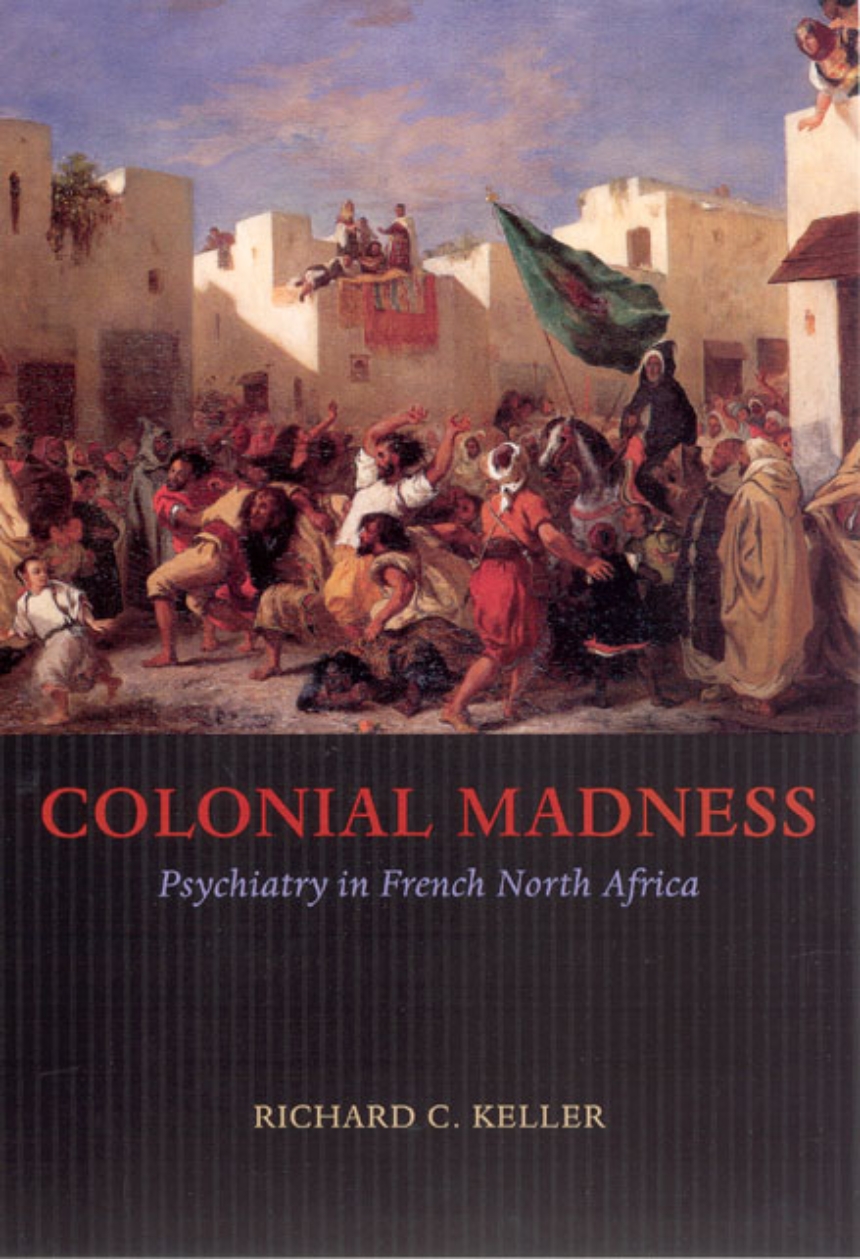Colonial Madness
Psychiatry in French North Africa
Nineteenth-century French writers and travelers imagined Muslim colonies in North Africa to be realms of savage violence, lurid sexuality, and primitive madness. Colonial Madness traces the genealogy and development of this idea from the beginnings of colonial expansion to the present, revealing the ways in which psychiatry has been at once a weapon in the arsenal of colonial racism, an innovative branch of medical science, and a mechanism for negotiating the meaning of difference for republican citizenship.
Drawing from extensive archival research and fieldwork in France and North Africa, Richard Keller offers much more than a history of colonial psychology. Colonial Madness explores the notion of what French thinkers saw as an inherent mental, intellectual, and behavioral rift marked by the Mediterranean, as well as the idea of the colonies as an experimental space freed from the limitations of metropolitan society and reason. These ideas have modern relevance, Keller argues, reflected in French thought about race and debates over immigration and France’s postcolonial legacy.
Reviews
Table of Contents
Introduction
1 Pinel in the Maghreb: Liberation and Confinement in a Landscape of Sickness
2 Shaping Colonial Psychiatry: Geographies of Innovation and Economies of Care
3 Spaces of Experimentation, Sites of Contestation: Doctors, Patients, and Treatments
4 Between Clinical and Useful Knowledge: Race, Ethnicity, and the Conquest of the "Primitive"
5 Violence, Resistance, and the Poetics of Suffering: Colonial Madness between Franz Fanon and Kateb Yacine
6 Underdevelopment, Migration, and Dislocation: Postcolonial Histories of Colonial Psychiatry
Conclusion
Notes
Bibliography
Index
